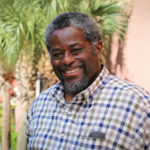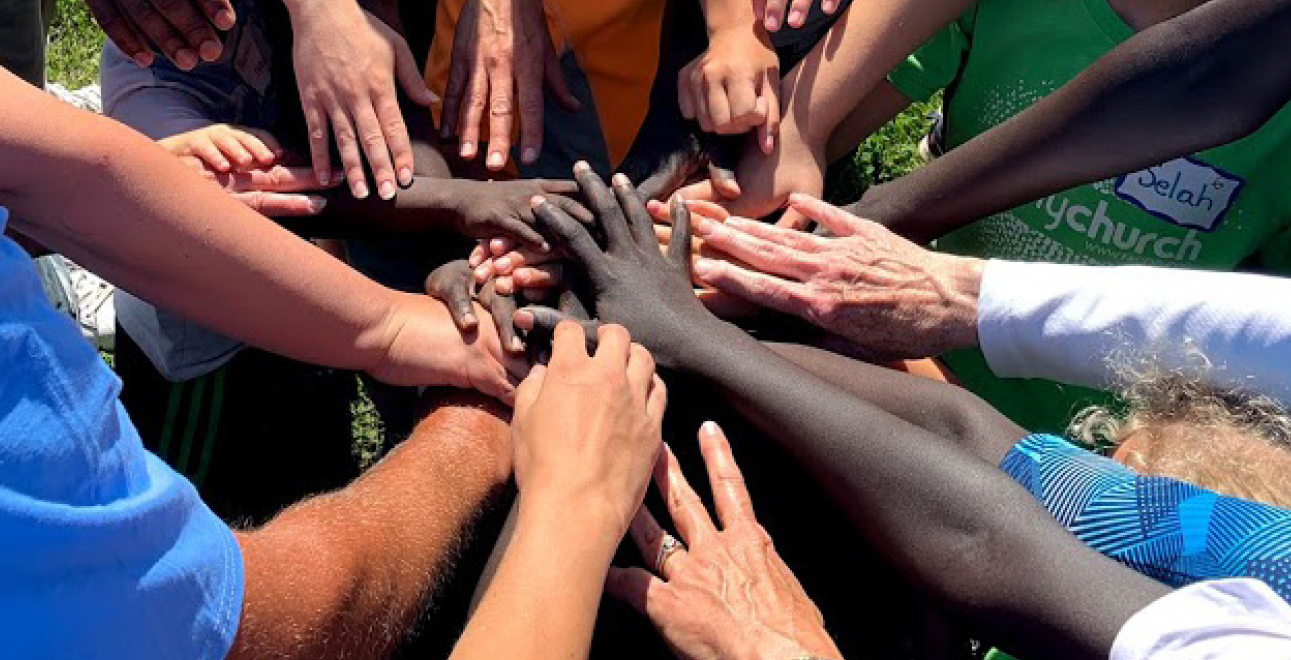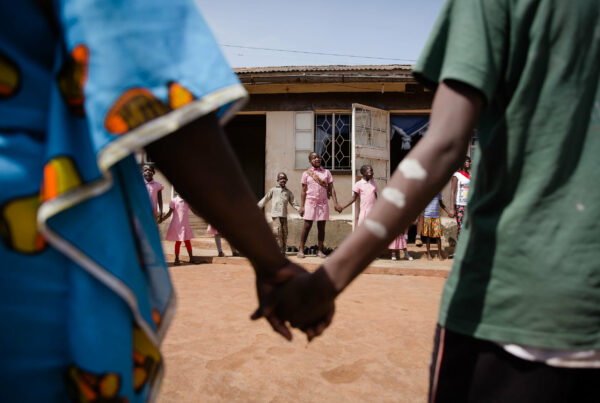The killings of George Floyd, Breonna Taylor, Ahmaud Arbery are symptoms of a systemic problem that demands justice. Throughout God’s Word, we see God’s heart for justice. In the Old Testament, Israel is repeatedly instructed to care for the widow, the orphan, and the foreigner. In the New Testament, over and over, Jesus stands with people who are oppressed. Racism is oppression, and we must stand against it, in theory and in practice. One step in the right direction is listening to the voices of people of color. Earl James is one of those voices. In this powerful letter, he shares from his experience as a black man of faith and offers some steps you can take against the injustice of racism.
A Pastoral Letter from a Black Man of Faith
This pastoral and advocacy letter differs from other ones that I have written or helped write. The central concerns are not church focused or in condemning racism per se. The central concerns here:
- Reflect from my perspectives on how the recent murders of George Floyd, Breonna Taylor, and Ahmaud Arbery fit into an overall experience of being African American.
- Highlight being an ally in this cause of racial equity and justice in our communities.
- Promote addressing “use-of-force” policies that govern police actions.
- Share some ways forward.
The recent murders of George Floyd, Breonna Taylor, and Ahmaud Arbery, are awful and evil in their own rights. For many of us, they are also part of a soul-damaging heritage of being of this country.
In George Floyd’s murder, former police officer Derek Chavin’s knee was on Floyd’s neck for nearly nine minutes. It remained there for nearly three minutes after George was unresponsive.
Chavin’s knee on the neck is merely the latest of an American heritage of noose around the neck. Regardless of knee or noose, the result is “I can’t breathe.” Both kill.
Take several moments. Sit or lie silently. Calm your body and mind. Then imagine for as long as you can a knee pressing hard on your throat. Can you imagine the pressure? Can you imagine struggling to breathe?
Keeping ourselves and our children breathing has been a bane of our existence. To stay watchful and prepare our children and grandchildren to be watchful:
- Requires an enormous strength of will, and
- Expends a huge amount of physical, mental, emotional energy.
Our and their watchfulness, we fully hope, will help keep us alive. Our watchfulness is exhausting.
“Our” does not only mean “those of us now.” Our parents had to be watchful and taught us of the Boomer generation to be so. For many of our parents, there was a close relationship between fear and respect. And in their parents’ time, fear was a tool they used to keep their children safe. Yes, there was prayer. Yes, there were worship services and vigils. Yes, there were beliefs that Christ is the answer. Yes, there were efforts to promote racial reconciliation and harmony. Despite faith and action and hope and love, from nooses to knees, the anxiety continues.
Like many of us, I have for over 40 years frequently had “the talk” with my children and very young grandchildren. Yet, still, this. A day after Derek Chavin murdered George Floyd, two of my grandchildren woke up from frightening dreams. One dreamt that she and her friends were carted off into slavery. She and her closest friend were forced by White women to scrub floors. Another dreamt that his close buddy who is White warned him repeatedly to watch out for White police. We listened quietly to both of them tell about their dreams and how they felt about the murder. Afterward, we shook with rage and hurt that this evil even entered the lives of our little ones. This was not a history lesson. This wasn’t read from a book. This was real-time, in-the-moment, and life shaping for them.
What is the teachable moment here for them? I was so grateful their parents took them to our local protest rally. Yes, a small number of people ended up defacing and destroying property. Yes, the police dealt with them. But, a massive number of protesters were peaceful, active, and united. When faced with evil, my grandchildren took steps to confront it. They are sifting themselves and taking stands. Taking stands for themselves, for those they know and love, and for this community they are part of.
I must add, in my time, I have learned about and been part of events and movements led by people of the Builder and Boomer generations. This one in my community was led by people from Generations Y and Z (my grandchildren’s generation). It warms my soul to see them owning this challenge. It warms my head and heart to follow their leadership.
I want to share on economics. In the Civil Rights movement, pastor- and church-led groups conducted economic boycotts to overturn Jim Crow. What started with lunch counter sit-ins at businesses that refused to serve Blacks helped create much wider opportunities in American life for Blacks and other oppressed people. The Blackout Coalition, a national racial justice effort launched in response to George Floyd’s murder, has joined that economic strategy. On July 7, 2020, Black people and all other allies are asked, for that day, to not buy anything. As was the case historically, the Coalition hopes to raise awareness and promote justice through this economic protest. For more information and to join the Coalition, see its Facebook page.
To close this section, a couple of beautiful references:
A few days ago, I read a powerful piece by a Black person, Stratton C. Lee III. He sifted through his sense of self and place. His words are elegant and eloquent. I wholeheartedly recommend you read it, reflect on it, and take his lead and sift yourself. May your heart race like mine as you read Stratton’s post.
I recently read this elegant and eloquent testimony on being an ally. Its author is a young White police officer, Justin Pletcher. In his post, he sifted his own heart and mind. He wrote about what he does with other White people. He shared about some things he did with people of color. Justin described how he measures the usefulness of him being an ally—he listens to those he serves. I wholeheartedly encourage you to read Justin’s post.
Use of Force Law Enforcement Policies
Police departments must hire, promote, and champion people of good will. But in this matter of killing, whether an officer is loving or racially reconciled is secondary. The primary issue is the murders, such as in George Floyd’s case, must stop. In their time, Rev. Dr. Martin Luther King, Jr. and others spoke like that about lynching. Regardless of hearts and racial reconciliation, lynching had to stop.
We need to understand far better what “use-of-force” policies are and why police murders of unarmed people normally do not appear to violate established use-of-force police policies.
Typically, use-of-force is a law or policy that guides when police can use different amounts of force to control situations. Use-of-force goals typically surround matters of arrest and protection of officers or others. In many jurisdictions, use-of-force is supposed to be a last resort tactic. Examples of elements of use-of-force policies can be found here.
We have a federal government and not a national one. Therefore, use-of-force laws and policies are determined at every governmental jurisdiction. A single or uniform law or policy is not possible. I strongly recommend that existing use-of-force policies in your area:
- Be examined
- Be measured against biblical and theological principles of love and justice
- Be challenged against actual incidents of police killings of unarmed people and
- Be changed in ways that radically reduce deaths by police of unarmed people.
Some Ways Forward and Some Next Steps
- Continue embracing peaceful public demonstrations for racial equity and justice, and for elimination of police brutality. (I reached out to an organizer of the protest I was part of to learn more and serve.)
- Find and continually express great care to those among your families and friends, of any generation. In frequent and diverse ways, tell them they matter and are of great value. Tell them specific things about their character and actions that impress you and that you hold dear. Always let them know in various and diverse ways they are gifts from God to you and to life itself.
- Work to re-craft use-of-force policies in your location to ensure that deaths of unarmed persons by police are eliminated or carry swift and substantial penalties. (I am talking with some people where I live who might want to conduct this work.)
- Review, talk about, and incorporate into conversations, education, sermons, advocacy, and so on the two postings mentioned previously from Stratton C. Lee III and Justin Pletcher. Explore how they practically live out the Belhar Confession’s principles of justice, reconciliation, and unity.
- Have inter-generational conversations and activities that can nurture inter-generational racial equity and justice understanding.
- Host one or more virtual or in-person congregational, family, or town hall meetings on any part of this matter.
- Watch the movie “Just Mercy” and discuss it. It is an exceptional telling of a true story about the dangers of systemic racism in American life.
Yours in Christ,
Earl James, RCA coordinator for African American Black Council and Advocacy

Earl James
Earl James is a retired Reformed Church in America (RCA) denominational executive who served in a variety of capacities. He says he really hasn’t retired yet as he “works” for his three teenage grandchildren and loves on his wider family who lives across several states. He continues service in the RCA as a member of the Commission on Race and Ethnicity and as an officer of the African American Black Council.



